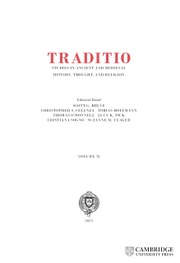Royal Childhood and Child Kingship
Refining adult-focused perspectives on medieval rulership, Emily Joan Ward exposes the problematic nature of working from the assumption that kingship equated to adult power. Children's participation and political assent could be important facets of the day-to-day activities of rule, as this study shows through an examination of royal charters, oaths to young boys, cross-kingdom diplomacy and coronation. The first comparative and thematic study of child rulership in this period, Ward analyses eight case studies across northwestern Europe from c.1050 to c.1250. The book stresses innovations and adaptations in royal government, questions the exaggeration of political disorder under a boy king, and suggests a ruler's childhood posed far less of a challenge than their adolescence and youth. Uniting social, cultural and political historical methodologies, Ward unveils how wider societal changes between the eleventh and thirteenth centuries altered children's lived experiences of royal rule and modified how people thought about child kingship.
- Compares eight case studies of boy kings of England, Scotland, France and Germany between c.1050 and c.1250
- Reveals the importance of children's practical involvement in rule and influence on systems of political authority
- Unites social, cultural and political approaches to the study of child kingship
Reviews & endorsements
'Ward has undoubtedly already achieved an enormous amount with her book: she has worked out her subject in a stringent manner, examined a wealth of material and prepared it in an original way, compiled numerous observations worth considering and created various starting points for a critical examination of the subject. In this respect, her contribution to research can undoubtedly be described as successful.' Clara Harder, Sehepunkte (from German)
'… a convincing reinterpretation of royal childhood and the kingship of rulers in childhood and a variety of suggestions for further research into the topic…' Andreas Büttner, H-Soz-Kult
'Ward's greatest contribution is to help broaden our understanding of medieval rulership. Her main conclusion, that children were valued members of and active participants within ruling families, provides a crucial contribution to ongoing research into medieval royal rulership. … Ward's study will no doubt help to shape and further our understanding of what medieval rulership entailed.' Abigail S. Armstrong, Journal of the History of Childhood and Youth
'This study, which also features a large number of valuable individual observations and new assessments of prominent cases of underage kings such as the Salian Henry IV, is convincing due to its consistent comparative analysis of a Europe-wide phenomenon.' Benjamin Müsegades, Deutsches Archiv für Erforschung des Mittelalters
'This excellent book leaves the reader not only knowing more, but wanting more, information about royal children in medieval Europe.' Lahney Preston-Matto, Speculum
'The issues raised by Emily Joan Ward's book are immensely engaging and important. Her call to rethink what we suppose about child kingship in particular is original and most welcome. And her scholarly capacity for and interest in comparative European history makes her book a guide for archival and historiographical research oriented toward a truly European Middle Ages. May the lens continue to widen on our understanding of child kings, and may Ward continue to lead us as we explore this fascinating subject.' Joseph P. Huffman, The American Historical Review
'The scope of this book is ambitious. While the main differences identified by Ward are those which develop over time, not among different polities, this does not mean that each of the four contexts examined was identikit, and Scotland emerges as distinctive in a number of ways, including, beyond those already mentioned, a lack of co-kingship and distinctive inauguration practices (p. 138). Across these contexts, however, Ward shows that the liminality of child rulers renders them not simply anomalies, but an important lens through which our understandings of kings of all kinds - big as well as small - can be recalibrated.' Amy Blakeway, The Scottish Historical Review
'A highly impressive feat of scholarship … No longer will child kings be able to be kept “out of sight, out of mind”. Ward, like the contemporary societies that had to deal with them, has made her boy kings visible and important in our understanding of what kingship was in the Middle Ages.' Andrew M. Spencer, The Scottish Historical Review
Product details
August 2022Hardback
9781108838375
300 pages
235 × 158 × 24 mm
0.653kg
Available
Table of Contents
- 1. Royal childhood and child kingship: An introduction
- Part I. Royal Childhood and Child Kingship: Models and History:
- 2. Children and kingship in the early and central Middle Ages
- 3. Woe to thee, O land? Models of child kingship
- Part II. Royal Childhood: Preparation for the Throne:
- 4. Familial education: Preparing boys to be kings
- 5. Loyalty, diplomacy and (co-)kingship: Preparing political communities
- 6. The royal deathbed: Preparing for child kingship
- Part III. Child Kingship: Guardianship and Royal Rule:
- 7. Guardianship, regency and legality
- 8. Adapting and collaborating: Child kingship and royal rule
- 9. Feasting princes? Violence, conflict and child kingship
- 10. Entering adolescence: Knighting, seals and royal maturity
- Conclusion: Re-thinking child kingship, c. 1050–1262.

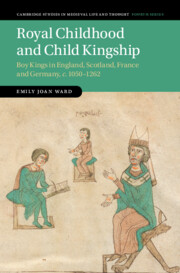
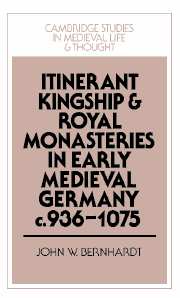
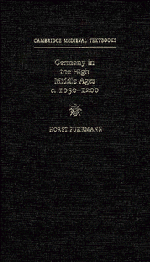
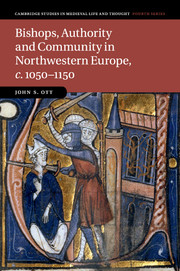
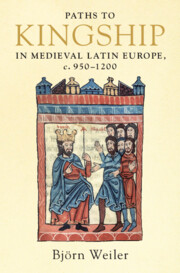



.jpg)
